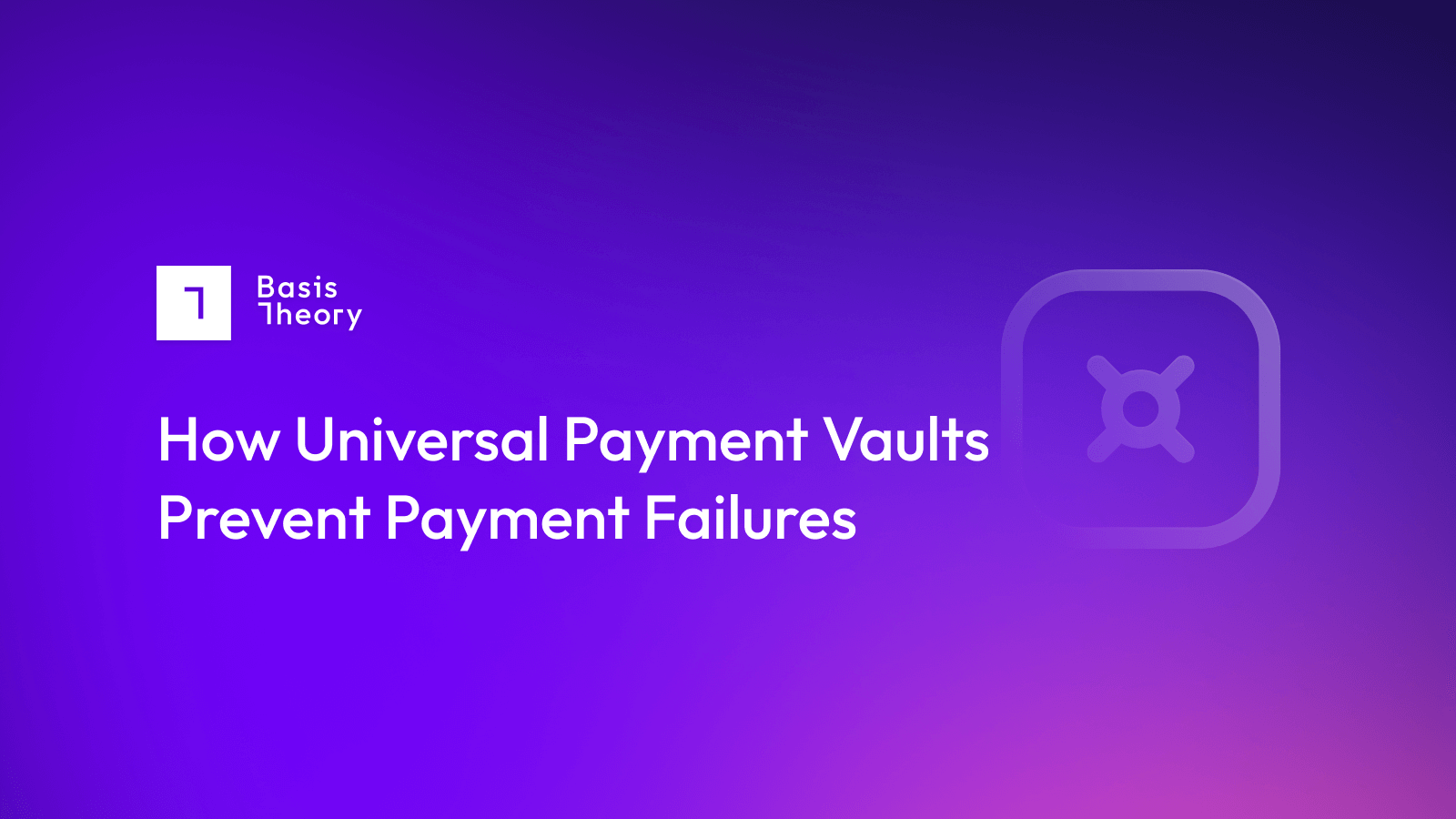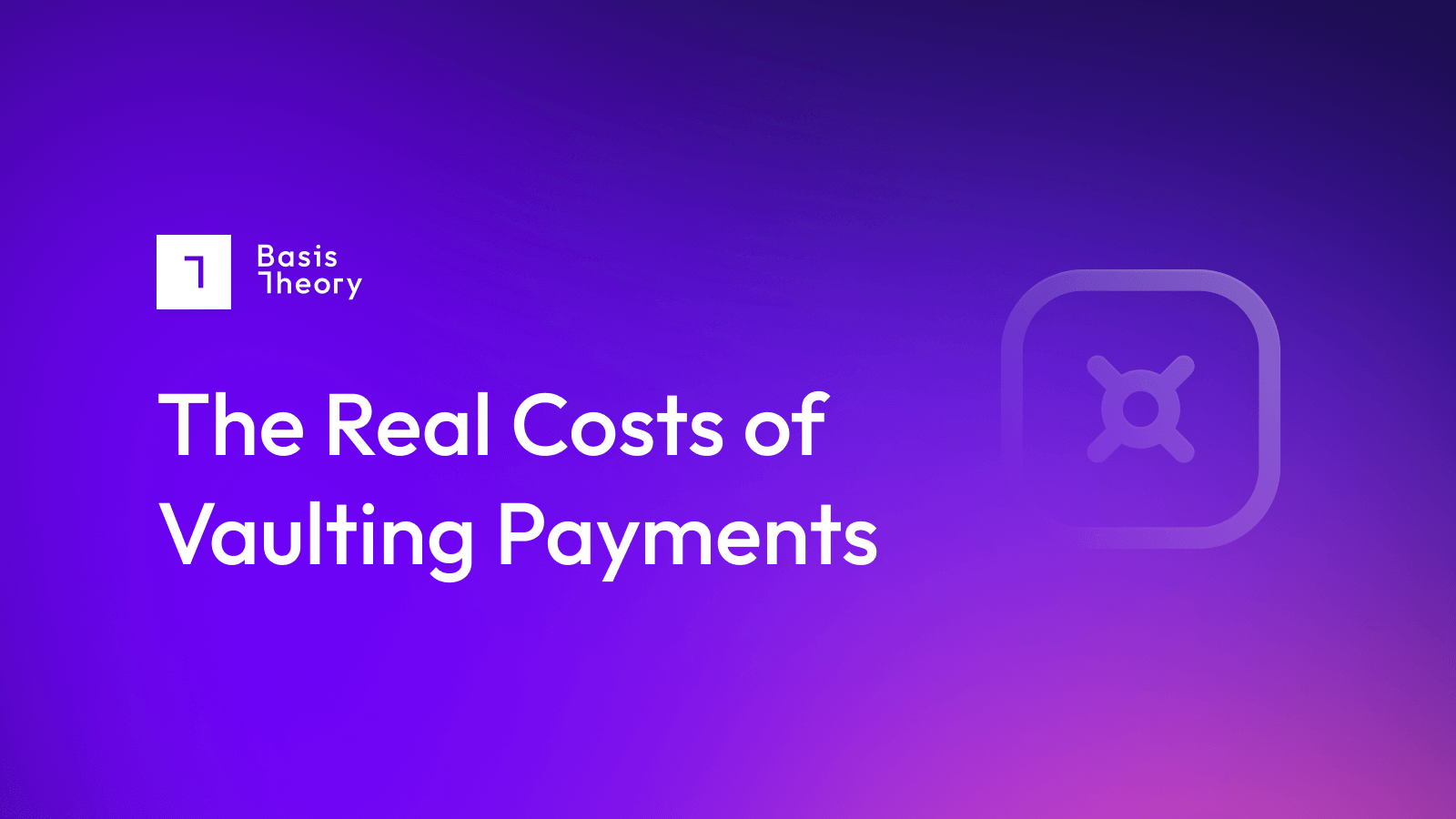How Universal Payment Vaults Prevent Payment Failures

What is a Universal Payment Vault?
A payment vault is a storage facility where merchants securely manage customer payment details, and transmit them to payment partners to complete transactions. To make the payment vault universal, it must offer the option of transmitting those payment details to the payment provider of the merchant’s choice. This capability broadens the merchant's options for optimizing their payment processing system, increasing the likelihood they will successfully charge customers on the first try, reducing the risk of soft declines, and empowering the merchant to properly optimize their transaction costs.
Why a Merchant Needs a Payment Vault
It is well-documented that any kind of friction in the payment process reduces the likelihood of a sale being completed. That friction may consist of something as simple as having to fill in more personal details than anticipated, or something as complex as having to reconfirm a CVV number every time a transaction is initiated. It is therefore important for merchants to reduce the amount of effort customers will need to put in to make their purchases, if they are to maximize their transaction volume.
This becomes particularly important for repeat customers: most consumers will accept entering their payment information the first time they buy from a merchant (with the standard provisos that they want to enter the least information possible, and expect to be able to select their preferred payment method), but they can become impatient, and therefore less likely to buy, if they have to do it again in subsequent visits.
As a result, merchants learn early on that they need to make it easy for customers to sign up for subscriptions and/or to return to make additional purchases. Many full-service PSPs make this easy for them, providing a vault facility that can hold and re-transmit customer cardholder details over time, with the merchant needing only to store a token, which relieves them of the need to execute many PCI-DSS related compliance activities. However, the challenge of using a PSP’s vault service is that it often ties the merchant to the PSP: the merchant has ownership only of the token, and must persuade the PSP to pass cardholder details on (if they can!) any time they decide to move their business to another provider. And, indeed, that transfer of cardholder data is normally limited to a one-to-one transaction, from one PSP to another, leaving the merchant in the same predicament, albeit with a new payment partner.
Why Merchants Need a Universal Payment Vault
Merchants who want to maximize their successful transaction rates, and drive down their cost-to-transact to the lowest level possible need not only the ability to store customer’s payment details for later use, but also the flexibility to transmit those details to the PSP of their choice. While they could certainly reclaim the responsibility of the actual storage from their full-service PSP, this can bring with it the onus of building a fully PCI-DSS-compliant payments system - and the need to demonstrate its compliance every year.
The alternative is a universal payment vault, generally offered by a third party tokenization provider like Basis Theory. This allows the merchant to continue to operate with only tokens stored in their own system (keeping the PCI-DSS burden low), while storing cardholder details securely in the provider’s vault. In addition, though, it provides the opportunity to build valuable automation into the payments system, in which those details can be transmitted to substantially any PSP partner the merchant selects.
When a merchant stores their cardholder data in a universal payment vault, they create the necessary foundation for a fluid and dynamic payments system, which takes advantage of all the different services, capabilities, and rates available. They can, for instance, route payments to different payment partners in different locations to avoid cross-border fees; use different PSPs to service different payment methods, gaining the best possible pricing for different card types; and adopt and deprecate new payment methods, like Buy Now Pay Later (BNPL) to assess effectiveness for their unique audience.
The Keys are Flexibility and Portability
Unlike dedicated payment vaults offered by PSPs, universal payment vaults put the merchant in charge, empowering them to build sophisticated, algorithm-driven payments systems that have the ability to meet - and even get ahead of - consumer needs and expectations. That flexibility is key in an area that sees so much rapid change: since 2016, digital payment methods have expanded from a 23% to a 32% market share and BNPL moved from non-existent to a full 5% of all sales. With this sort of rapid shifting in the market, merchants need to be able to move between service offerings and providers in order to maximize their appeal to customers, and their transaction volume.
Meanwhile, knowing the impact of friction on e-commerce (studies suggest 2 out of every three online shoppers have abandoned one merchant in favor of another over irritation with the payment process), merchants need to be able to exercise ownership over their customer data - and be able to apply it to any payment partner they select. This portability, which is expensive and hard to arrange with the big-name full-service PSPs, is essentially a standard feature of a universal payment vault: by their very nature, token vaults empower merchants to transmit cardholder data to the downstream payment systems of their choice.
.png?width=365&height=122&name=BTLogo%20(1).png)



